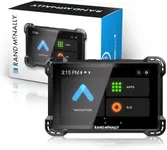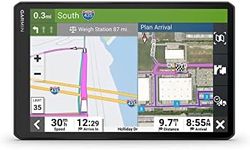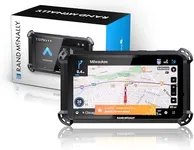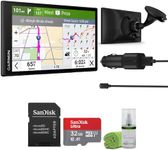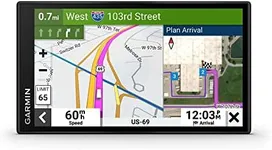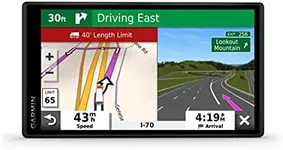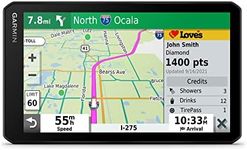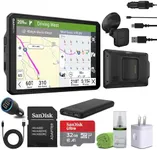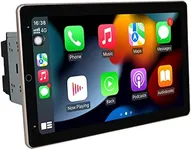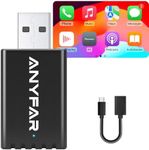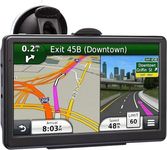Buying Guide for the Best Trucker Gps
Choosing the right GPS for a trucker is crucial for ensuring efficient and safe navigation on the road. A trucker GPS is designed to meet the specific needs of truck drivers, including route planning, avoiding restricted roads, and providing real-time traffic updates. When selecting a trucker GPS, it's important to consider several key specifications to ensure it meets your needs and enhances your driving experience.Screen SizeThe screen size of a trucker GPS is important because it affects how easily you can view maps and navigation instructions. Screen sizes typically range from 5 inches to 10 inches. Smaller screens (5-6 inches) are more compact and easier to store, but may be harder to read, especially while driving. Larger screens (7-10 inches) provide better visibility and are easier to interact with, but they take up more space and may be more cumbersome. Choose a screen size that balances visibility and convenience based on your truck's cab size and your personal preference.
Mapping and RoutingMapping and routing capabilities are essential for a trucker GPS. This spec determines how well the GPS can plan routes that are suitable for trucks, avoiding low bridges, weight restrictions, and other hazards. Look for GPS units that offer truck-specific routing, which takes into account the size, weight, and type of your truck. Some GPS devices also provide real-time updates on traffic conditions and road closures. If you frequently drive in unfamiliar areas or need to avoid certain routes, prioritize a GPS with advanced mapping and routing features.
DurabilityDurability is a key spec for trucker GPS units because they need to withstand the rigors of long-haul driving. A durable GPS will have a sturdy build, resistant to vibrations, extreme temperatures, and potential drops. Look for devices with rugged designs and protective casings. If you often drive in harsh conditions or on rough roads, a more durable GPS will ensure reliable performance and longevity.
Voice CommandVoice command functionality allows you to control the GPS without taking your hands off the wheel, enhancing safety and convenience. This feature lets you input destinations, change settings, and get route information using voice prompts. GPS units with advanced voice command capabilities can understand natural language and respond accurately. If you prefer hands-free operation or need to make frequent adjustments while driving, a GPS with robust voice command features will be beneficial.
ConnectivityConnectivity options, such as Bluetooth and Wi-Fi, enable your GPS to connect with other devices and services. Bluetooth allows for hands-free calling and syncing with your smartphone, while Wi-Fi can be used for updating maps and software. Some GPS units also offer integration with trucking apps and services, providing additional features like fuel tracking and dispatch communication. If you rely on multiple devices or need seamless updates, prioritize a GPS with strong connectivity options.
Battery LifeBattery life is important for ensuring your GPS remains operational during long trips. GPS units can have varying battery capacities, with some lasting only a few hours and others up to 10 hours or more. If you often drive for extended periods without access to a power source, choose a GPS with longer battery life or one that can be easily charged via your truck's power outlets. This will prevent interruptions and ensure continuous navigation support.
User InterfaceThe user interface of a trucker GPS affects how easily you can navigate its features and settings. A well-designed interface will be intuitive, with clear menus and easy-to-read icons. Touchscreen interfaces are common and offer quick access to functions, while some units may also have physical buttons for added convenience. If you prefer a straightforward and hassle-free experience, look for a GPS with a user-friendly interface that suits your level of tech comfort.

